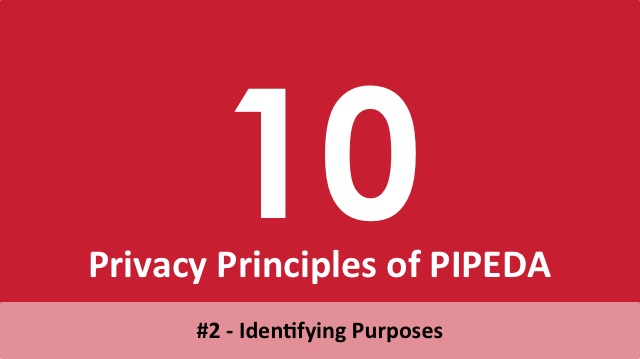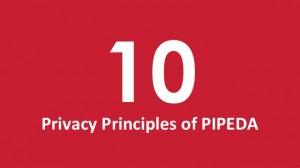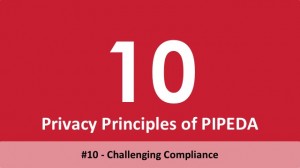Last updated on January 30, 2016
The second principle of the 10 Privacy Principles of PIPEDA is Identifying Purposes.
Identifying Purposes
The principle of Identifying Purposes states that an organization must clearly identify the purposes for which personal information is collected, either before or at time of collection. This also helps organizations comply with the Openness and Individual Access principles.
When Collecting Personal Information
If an organization uses its employees to collect personal information such as asking customers for their addresses or phone numbers when they purchase products or services, those employees should be able to clearly explain why personal information is required when they ask for its collection.
If an organization collects personal information on application forms, those application forms should clearly describe the purposes for which personal information is being collected.
New Purposes for Personal Information
If personal information is collected and an organization finds a new purpose for it, unless the new purpose is required by law, an organization cannot use that personal information for another purpose without consent.
Compliance with Other Principles
Abiding by this principle also helps an organization comply with the fourth principle of Limiting Collection and prevents it from collecting information that is not required for its intended purposes.
The principle of Identifying Purposes is also closely linked to the principles of Limiting Collection and Limiting Use, Disclosure, and Retention.
NEXT PRINCIPLE: Consent
BACK TO: 10 Privacy Principles of PIPEDA





[…] 2 Identifying Purposes […]
[…] 2 Identifying Purposes […]